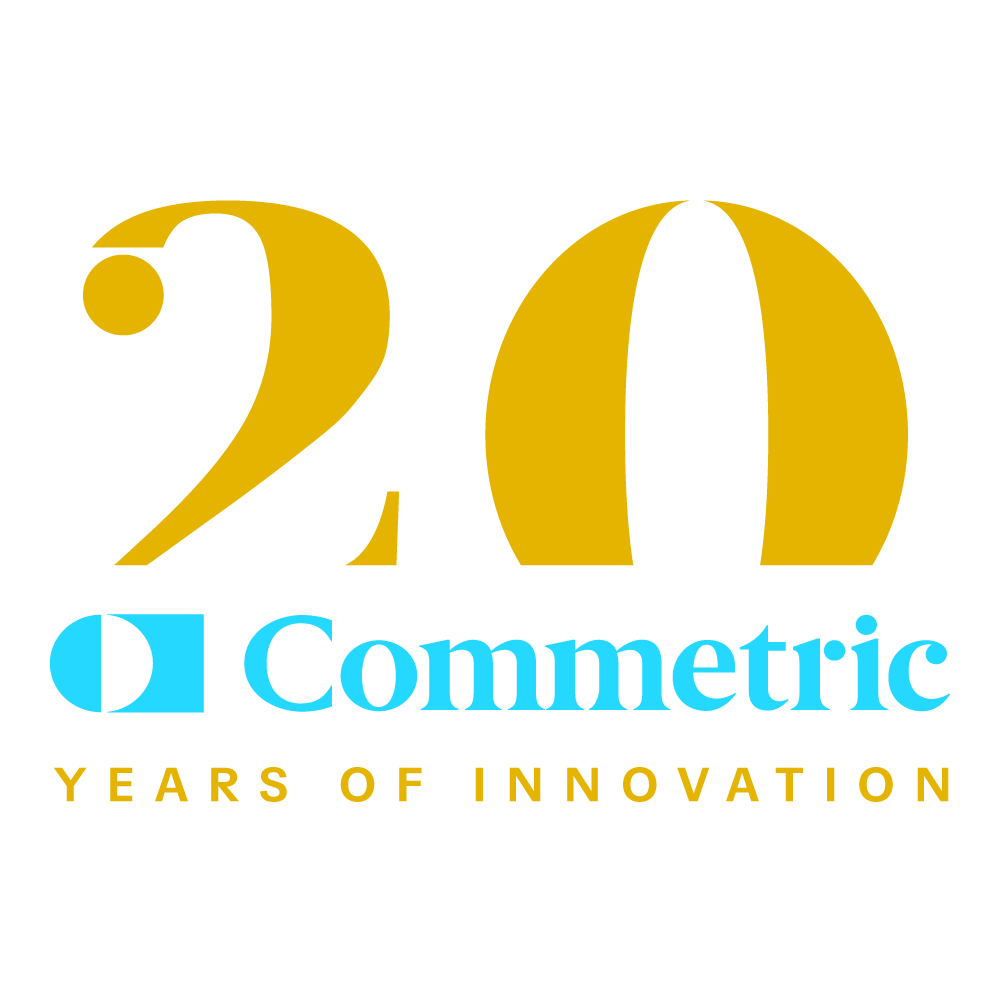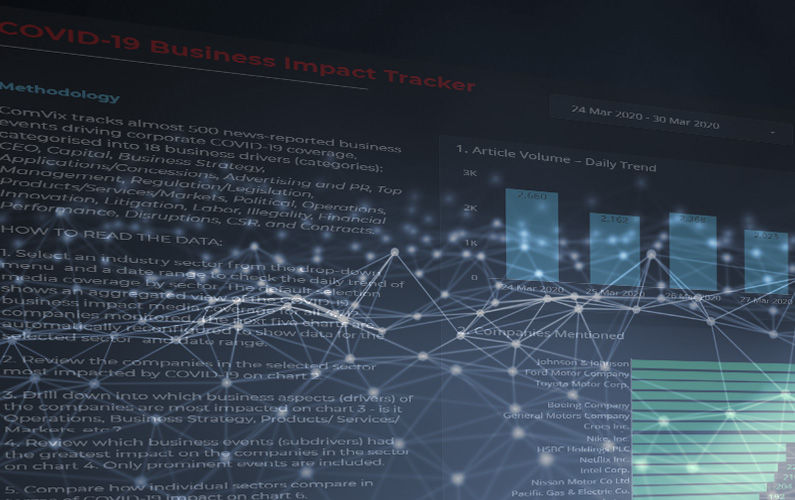According to many analysts, Big Tech got even bigger during the coronavirus pandemic, as millions are confined at home, relying on services such as online retailing or video conferencing.
Tech companies were quick to position themselves as essential not only for coping with life under quarantine but also for battling the virus itself by utilising new software solutions.
We decided to use the Commetric COVID-19 Business Impact Tracker to analyse the effects of the COVID-19 crisis on the technology sector. Our free tool uses rule-based natural language processing (NLP) and machine learning to track more than 450 types of news-reported business events that affect companies and industries during the pandemic.
We analysed 112,643 articles from 7,224 online media outlets for the period 15 January – 30 April 2020, covering most publicly-traded companies in the US, and looked into the business drivers that gained the most traction in the media in the context of the COVID-19 pandemic.
Like many other industries such as aerospace or food and drink, the most impactful business driver here was Financial performance, which featured articles primarily on financial forecasts and earnings announcements:
But unlike the other industries we analysed, which saw primarily falling profits, the Financial performance driver for the tech sector featured success stories even if companies had worse than expected results at the beginning of the year.
For example, Apple warned in February that it will likely miss the revenue guidance for its fiscal second-quarter because of the pandemic’s impact on production and demand, but then reported an all-time record for revenues from Apple’s services such as Apple Music, Apple TV+ and iCloud.
In a similar vein, Microsoft warned of weakness due to a hit to its supply chain from the coronavirus outbreak, but then reported an increase in sales driven by Intelligent Cloud segments as cloud usage increased, particularly in Microsoft 365 and video meetings platform Teams.
Those two companies took a significant lead over competitors in terms of their media resonance during the pandemic:
Apple and Microsoft‘s lead was particularly due to a great number of articles under the Products/Services and Innovation drivers. In fact, Technology was the second-most innovative sector in terms of media resonance after Healthcare.
But unlike Healthcare, the innovation efforts in the Technology sector would rather fall in the ‘incremental innovation’ category, with companies developing tools or applications, often as part of their current offerings, to help people increase their safety and make the most of the COVID-19 crisis.
Apple‘s innovation efforts put the company in the centre of the media’s attention when it launched a website and a new app dedicated to COVID-19 screening, offering an online screening tool, information and guidance.
The discussion around the firm was also significantly boosted by the Products/Services driver as it famously released a smaller and cheaper iPhone targeting budget-conscious customers during the pandemic.
Microsoft launched a tracking website providing statistics and information about the spread of the disease. The company also gained exposure because of the Contracts and Orders driver, as it started working with the US Centers for Disease Control and Prevention and a number of major healthcare providers to deploy a chatbot to help with the crisis.
In addition, Microsoft made its flagship developer conference ‘Build 2020’ a digital-only event, resulting in a fair share of media coverage under the Advertising/PR/Brand driver.
Meanwhile, HP launched a new program that will deliver educational content from scientific, publishing and media companies to support teachers and students during the pandemic, partnering with TIME for Kids, Britannica and NASA.
Another initiative which proved popular was Shopify‘s new shopping app geared towards connecting local businesses with nearby shoppers, allowing users to reimagine shopping experiences from home.
Although Technology lagged behind Financial Services, Fashion and Health in terms of CSR activity, according to our recent analysis, some companies gained prominence namely because of their efforts on this front.
For example. semiconductor manufacturer Intel and Shanghai-headquartered Jinko Solar, the world’s largest solar panel manufacturer, each donated 1 million masks and pieces of protective gear to health workers.

